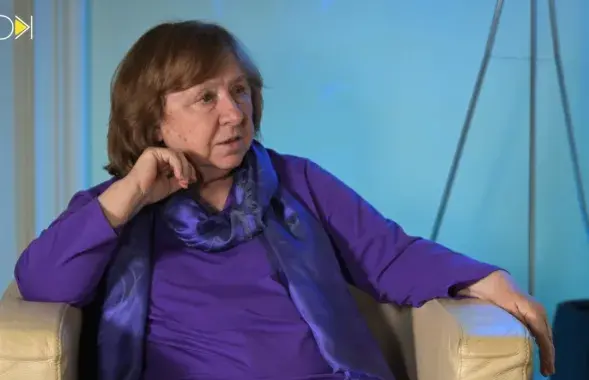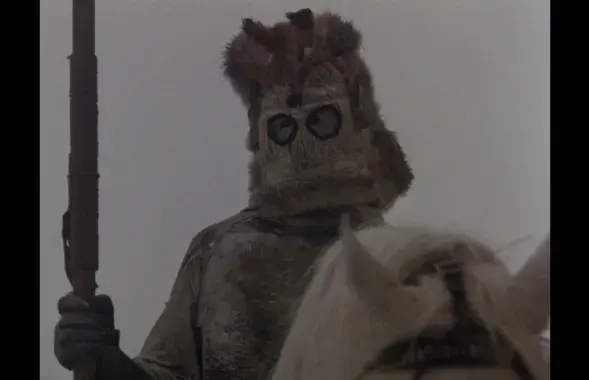Former judge Volha Komar: "I resigned voluntarily"
She has no regret about sentences she made, calls her presence on EU 'black list' unfair but is not going to complain
Former judge Volha Komar allegedly got married to an Englishman and went to work for "Beltransgas", but cannot go to Europe for a reunion with her husband because of the sanctions, writes "Belpartizan". Euroradio has called Volha Komar in order to find out whether all this is true.
Euroradio: Is it true that you have an English husband and cannot go to
him?
Volha Komar: I saw this article in the Internet, that I work
for "Beltransgas" and my husband is an Englishman, and I am going to
move to England. This is a fake story from the very beginning. However, if
someone wants to get some advertisement for the cost of my name, I don't
mind.
Euroradio: Where do you work now? Is it true that you quit the judge
job by your personal wish?
Volha Komar: Yes, this is true. Also, I do not work for
"Beltrasgas" and my husband is not an Englishman.
Euroradio: Do you work as a lawyer?
Volha Komar: I don't.
Euroradio:So, you are not a judge anymore, are the sanctions against
you still in force?
Volha Komar: I suppose so.
Euroradio: Did you try to find out how to cancel them?
Volha Komar: As far as I understand, all these procedures are
described at the European Commission's website. I consider these limitations
illegal. I am not going to do anything to put the sanctions off me.
Euroradio: Do you feel uncomfortable about the sanctions? Have you
tried to go anywhere?
Volha Komar: If people have any idea about the judges'
salaries, they will know there isn't any discomfort. Because these salaries do
not let us rest in Europe, or visit the EU on a regular basis. I am not
speaking about other officials, but when they say judges have accounts abroad,
this is totally senseless. If people want to believe in fairy-tales, let it be
so. I think there are just several people who have nothing else to do but
writing stuff about me in the internet. I know many of these people well and I
have absolutely no idea why they are doing this.
Euroradio: Did you really quit the court because you disliked the job?
Volha Komar: This is a very hard job. You come to work at 7
a.m., and leave at 9 p.m., or even 10 p.m. sometimes. You need to read the
cases, to prepare to every trial. It is really complicated to work in such
tense regime all the time. Therefore, I just wanted no more of this. If someone
thinks it's easy, let him try, there are many vacancies. Telephone law, you
say? Those who know me understand that no telephone law existed in my case,
never.
Euroradio: You were included into the black list after Vasil
Parfyankou's case. Do you still consider that sentence fair today?
Volha Komar: The sentence was verified by all the higher
instances. It is legal and grounded, as for the sentence itself. As for the
whole situation - when electoral campaign starts, some people say the current
president is bad, come to the square after the election as the election will be
illegal. So the people come there, really dissatisfied, and the leaders say -
let's go to another square now. Then the leaders say - let us enter the House
of Government and wait for Lukashenka and his ministers there. This is all
recorded, we have this. So the people break into that building no one knows
why.
Parfyankou was Nyaklyaeus' authorized representative. He was wearing a scarf, there were many video cameras. A picture, just a picture. A man is trying to break into the House of Government, crashing and damaging it. It is unknown what would have happened if they entered the House. And then these people say it was a provocation.
I read in the sanctions that I am punished for breaking the freedom of word.
Parfyankou wanted to express his freedom of word by this. Probably, if I come
to the European Parliament and break their doors by feet and fists, and a whole
crowd of people stands behind my back, I doubt that someone will say I came
there to express my freedom of word. They will say it's a hooliganism, at
least. We have laws that we are obliged to follow, whether someone likes it or
not.
I am convinced that the political leaders who led the people to the
square are responsible for what happened afterwards in the first place. And the
fact that they, like cowards, jumped in the car and tried to escape from there
characterizes those people pretty well.
Sannikau is hiding in London nowadays. They say I married an Englishman and
also want to move to England... Well, if that's what they dream of, let it be
so. This is not what I dream of. I am a supporter of human right. In my work, I
always followed the principle of human rights, I think. Probably, I made some
mistakes as I am a human being, not a machine. Every person makes mistakes. If
I made any, the higher court instance would always correct them.
I wouldn't say I am the people's enemy, or the enemy of the court system. I
love my Homeland. I can tell you - I have nothing to repent for in what I do.
Euroradio: I did not attend the trial. What led you when you took the decision?
Volha Komar: All decisions are taken in the consultative room.
If some opposition websites were interested in what was written in the
sentence, they could have asked the lawyer of defence and see the proof base to
which the court referred and why the court considered Vasil Parfyankou guilty.
Euroradio: As for you personally, which proof finally convinced you
that he was guilty?
Volha Komar: The court makes every sentence in a consultative
room where no one is admitted. This is the secret of the consultative room. All
the proofs to which the court referred are listed in the sentence. This is a
hard work, the judge needs to analyze information. As in journalism - there is
some information and it needs to be analyzed. Some make conclusions, some
don't. In this case, the court made conclusions on the basis of the proofs,
presented at the trial.
Volha Komar sentenced HR defender from Vitsebsk Pavel Levinau to 10
days of detention for swearing in public in Minsk. He went on hunger strike in
the detention center. After the detention, Pavel came to the judge under
appointment and asked her, whether she really believed that he had sworn in
public.

Pavel Levinau: "Ordinary citizens could make an appointment at a judge's for personal issues. So I came there, and she told me that my guilt was confirmed by the court's resolution. However, I was interested in another aspect, as I can read resolutions myself. The judge justified her verdict by the fact that two policemen witnessed against me in court: "If I considered you innocent, how would it have looked? There were no proofs from you, but there were written and oral testimonies that you had sworn". I understood that she was hinting that the system was like this."
Pavel Levinau also recalls that judge Komar planned not to renew her working
contract back then.
Photo: svaboda.org















